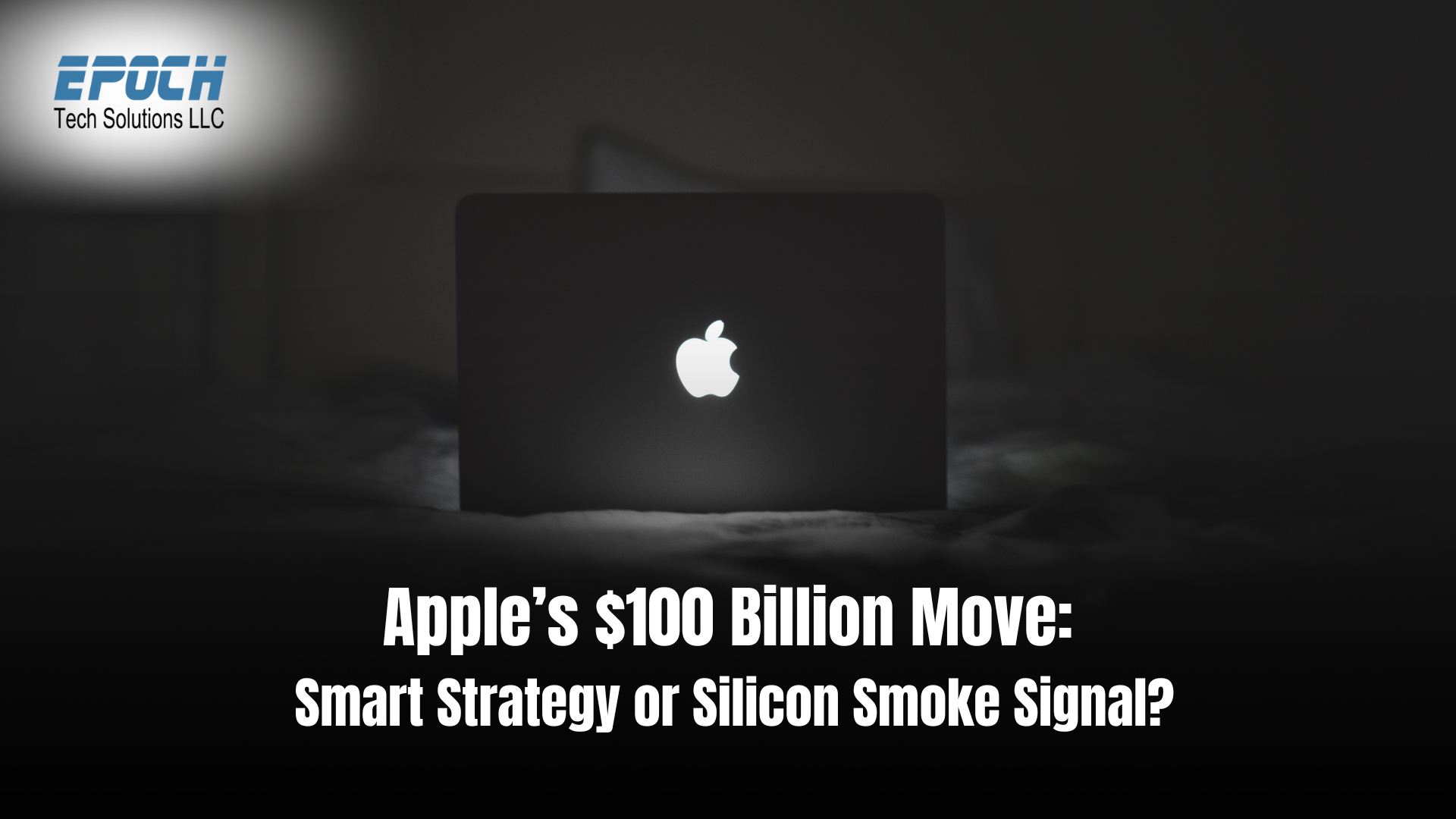
Let’s call it the iRepatriation. After years of dancing delicately between global supply chains and US trade expectations, Apple has just announced a $100 billion pledge to boost domestic manufacturing. This comes not-so-coincidentally as pressure mounts from the White House and President Donald Trump’s aggressive trade rhetoric resurfaces, armed with a fresh round of tariffs and nationalistic fervor.
According to White House officials, Apple’s new commitment aims to “reshore the production of critical components” in the name of economic and national security. In simple terms: bring the iPhone home or face more tariffs.
Apple CEO Tim Cook, never one to play chicken with geopolitics, seems to be playing his cards smartly. While Apple has already committed $500 billion to US investments over four years (including AI-focused factories and rare earth material partners), this fresh $100B seems more like a timely diplomatic play than a fundamental business pivot.
Let’s zoom out for a moment.
Apple has long relied on China for its manufacturing, but that loyalty is being tested again. Trump’s tariff hikes on Chinese goods have already cost Apple $800 million in a single quarter. Ouch! Add to that looming 50% tariffs on Indian-made goods and whispers of a semiconductor-specific import tax? You’ve got yourself a recipe for boardroom-induced migraines.
In response, Apple’s been shifting parts of its supply chain to India and Vietnam for iPhones, Macs, and Watches. But complete US-based production? Still a fantasy: one with a hefty price tag and logistical nightmare attached.
So, is this $100B a real production leap or a political placebo? That depends on who you ask.
While there are no direct small business testimonials yet, the closest example is Apple’s partnership with MP Materials, a rare earth mining company in the US. Apple pledged $500M to help expand domestic mining, while the US government guaranteed a minimum purchase price for output.
This kind of public-private collaboration might become the blueprint for future tech manufacturing deals.
Paolo Pescatore, founder of PP Foresight, said it best: “It’s impossible to think now everything could just suddenly be produced, manufactured, and put together in the US overnight.”
In other words, Apple may be planting the tree, but we’re still years away from the fruit.
Nancy Tengler, CEO of Laffer Tengler Investments, sees the move as strategic compliance. “A savvy solution to the president’s demand.” She believes it’s more about optics than immediate economic impact.
Let’s break it down:
Apple’s $100B pledge is part marketing, part geopolitics, and part long-term insurance policy. Whether it results in a domestically built iPhone or simply smoother tariff negotiations remains to be seen.
But for SMBs, this is more than just Silicon Valley soap opera. It’s a sign of the times. As the tech titans rewire their strategies, it’s time for the rest of us to do the same.
Want to understand how shifts like this affect your supply chain, tech stack, or business model? Let’s talk.https://www.epoch-techsolutions.com/contact-us
#softwarereview #epochtech